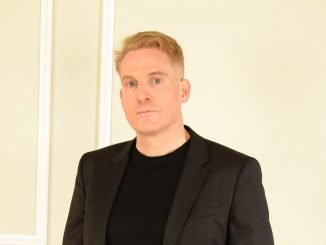
RALEIGH — Months after being at the center of an insurance industry bribery case that ended with his indictment, political donor and insurance magnate Greg Lindberg’s legal team asked the court to dismiss charges.
On Wednesday, Sept. 18, lawyers for Lindberg filed a motion to dismiss the indictment against him “for failure to state an offense,” because the offense he is charged with, they believe, defines “official acts” by a government official too broadly.
The indictment states that Mike Causey, while commissioner of the N.C. Dept. of Insurance, asked Lindberg for campaign contributions in exchange for reassigning a deputy who was overseeing Lindberg’s business. Lindberg agreed to give the payments, not knowing that Causey was working with the FBI and was recording their conversations.
Lindberg is charged, along with John D. Gray, John V. Palermo and former N.C. GOP Chairman Robin Hayes, with conspiracy to commit honest services fraud and bribery concerning programs receiving federal funds, and aiding and abetting.
The defense, in the memorandum in support of its motion to dismiss, responded to this charge, saying, “But a staffing change is not an official act within the meaning of McDonnell’s first step—because a personnel move is not like a ‘lawsuit, hearing, or administrative decision.’”
This is a reference to a 2016 U.S. Supreme Court decision that found former Virginia Gov. Bob McDonnell was wrongly convicted of bribery charges because federal prosecutors had defined “official acts” of government officials too broadly. The unanimous decision was written by Chief Justice John Roberts.
“Mr. Lindberg did not request any outcome regarding the Department’s past or future examinations of his company. Instead, he simply sought a fair and reasonable regulatory examination by a competent and neutral decision-maker,” the motion said.
The motion cited a second Supreme Court case, Skilling v. United States, another bribery case, this one dealing with former Enron CEO Jeffrey Skilling, to say the 9-0 decision limited “honest-services fraud to cases involving ‘core’ bribery or kickbacks.” They added that “Mr. Lindberg did not profit from the alleged scheme, because his request for a personnel move did not affect the outcome of any matter pending before the Department of Insurance.”
Lindberg’s defense team also advances a theory that the government’s position on what constitutes honest services fraud would “cast a pall of potential prosecution” over citizens’ demands for better government. They gave an example in their legal memo of a person “who pledges to contribute to a senator based on her support for a particular nominee now risks prosecution under the government’s theory.”
The U.S. District Court for Western North Carolina, where the case is being tried, will now have to determine whether to approve this motion and dismiss the charges, or to continue with the trial. Bobby Jones with the Charlotte office of the Western District told NSJ on Tuesday that they had no comment on the motion and that it would be addressed in court.


